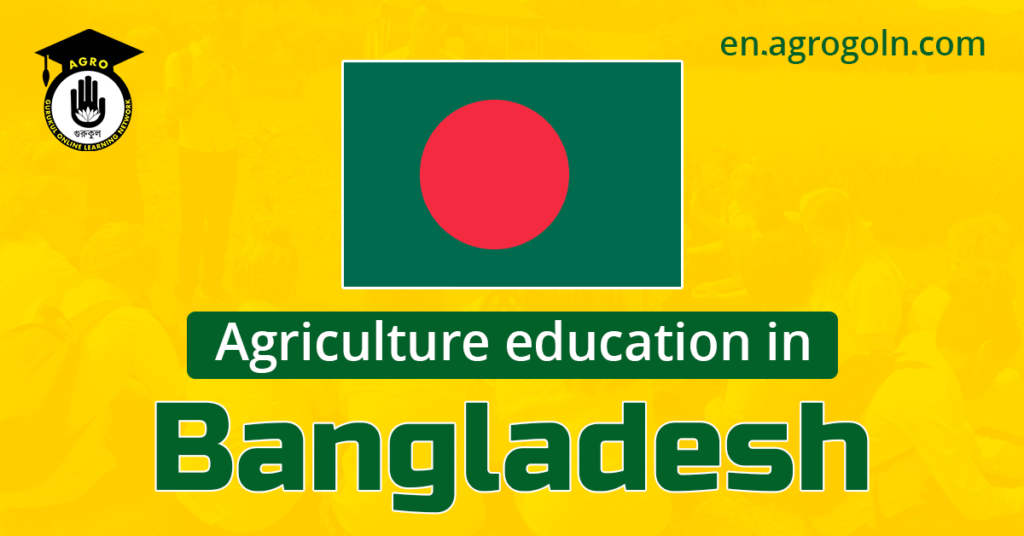Agricultural Education in Bangladesh: Nurturing Agricultural Growth and Sustainability.Agriculture is the backbone of Bangladesh’s economy, employing a significant portion of its population and contributing substantially to its GDP. To ensure sustainable agricultural growth and development, agricultural education plays a pivotal role. It equips farmers, agricultural professionals, and policymakers with the necessary knowledge, skills, and innovative practices to address the challenges of a rapidly changing agricultural landscape. This article delves into the status of agricultural education in Bangladesh, its challenges, achievements, and the way forward.
Agricultural Education in Bangladesh
Historical Perspective of Agricultural Education
The roots of agricultural education in Bangladesh can be traced back to the British colonial era when agricultural schools were established to train local farmers and agricultural workers. After gaining independence in 1971, Bangladesh prioritized agricultural development, recognizing its critical role in poverty reduction and food security.
In 1961, the East Pakistan Agricultural University (now Bangladesh Agricultural University – BAU) was established in Mymensingh as the first agricultural university in the country. It paved the way for specialized agricultural education and research. Over the years, numerous agricultural colleges, institutes, and universities have been established, fostering expertise in various aspects of agriculture.
Current Landscape of Agricultural Education
Presently, Bangladesh boasts a comprehensive network of agricultural education institutions, including agricultural universities, colleges, and research institutes. Some of the notable institutions include:
- Bangladesh Agricultural University (BAU): Located in Mymensingh, BAU is the premier agricultural university in Bangladesh. It offers undergraduate, postgraduate, and doctoral programs in various disciplines, including crop science, animal science, agribusiness, agricultural engineering, and fisheries.
- Sher-e-Bangla Agricultural University (SAU): Located in Dhaka, SAU is another renowned agricultural university, offering specialized programs in agriculture, veterinary science, and agribusiness.
- Bangabandhu Sheikh Mujibur Rahman Agricultural University (BSMRAU): Situated in Gazipur, BSMRAU focuses on research and education in agriculture and related fields.
- Chittagong Veterinary and Animal Sciences University (CVASU): This university in Chittagong specializes in veterinary sciences and animal husbandry.
- Khulna Agricultural University (KAU): Located in Khulna, KAU offers agricultural education and research opportunities in the southwestern region of Bangladesh.
- Bengal Agricultural University: An upcoming agricultural university in Rajshahi, set to further enhance agricultural education in the northwest region.
Additionally, agricultural colleges under the Bangladesh Agricultural University and other regional agricultural research institutes provide technical education and training to students pursuing agricultural careers.
Challenges in Agricultural Education
Despite significant progress, agricultural education in Bangladesh faces several challenges that need to be addressed to achieve further growth and sustainability.
- Outdated Curriculum: Some agricultural curricula may not keep pace with modern agricultural practices, biotechnology, and climate change. Updating curricula to incorporate innovative approaches and technologies is crucial.
- Limited Research and Extension: Integrating research and extension services is essential to disseminate cutting-edge agricultural knowledge to farmers and agricultural communities. More emphasis on practical training and field-based learning is necessary.
- Shortage of Skilled Faculty: Attracting and retaining skilled faculty members with expertise in specialized fields can be challenging, particularly in remote agricultural institutions.
- Adapting to Climate Change: Bangladesh is highly vulnerable to the impacts of climate change, which significantly affect agriculture. Agricultural education must incorporate climate-resilient practices and mitigation strategies.
- Farmers’ Awareness: Disseminating agricultural knowledge to farmers is crucial for implementing best practices. Agricultural education should extend beyond academic institutions to reach rural communities.
Achievements and Contributions
Despite the challenges, agricultural education in Bangladesh has made remarkable achievements and contributions to agricultural development.
- Enhancing Agricultural Productivity: Education and training have led to improved agricultural practices, increasing crop yields and livestock production.
- Diversification of Agriculture: With education in specialized fields, farmers have diversified their agricultural activities, leading to increased income and reduced reliance on a single crop.
- Introduction of Modern Technologies: Education has facilitated the adoption of modern agricultural technologies, such as high-yielding varieties, precision farming, and aquaculture.
- Empowering Women Farmers: Agricultural education has empowered women farmers, enabling them to actively participate in agricultural activities and decision-making processes.
- Research and Innovation: Agricultural universities contribute significantly to agricultural research, developing innovative solutions to address emerging challenges.
Future Prospects and Recommendations
The future of agricultural education in Bangladesh holds immense promise. To strengthen its role in agricultural development, the following recommendations can be considered:
- Curriculum Enhancement: Continuously update curricula to incorporate the latest agricultural technologies, climate-resilient practices, and sustainability principles.
- Research and Innovation: Strengthen research capabilities and collaboration with industries and institutions to develop innovative solutions for agricultural challenges.
- ICT Integration: Incorporate information and communication technology (ICT) in agricultural education to enhance access to knowledge and promote e-learning opportunities.
- Public-Private Partnerships: Foster collaborations between educational institutions, government agencies, NGOs, and the private sector to promote research, extension services, and knowledge dissemination.
- Community Outreach: Engage in extensive community outreach programs to raise awareness about sustainable agricultural practices among farmers and rural communities.
- Student Engagement: Encourage students to actively participate in agricultural activities, field trips, and practical experiences to gain real-world insights.
- Incentives for Skilled Faculty: Provide incentives and support to attract and retain skilled faculty members to ensure quality education.
Agricultural education in Bangladesh plays a pivotal role in promoting agricultural growth, sustainability, and food security. It has come a long way since its inception, with numerous institutions dedicated to fostering agricultural expertise and research. However, to meet the challenges of the 21st century, continuous improvement, innovation, and community engagement are essential. By nurturing a skilled and knowledgeable workforce, Bangladesh can unlock the full potential of its agriculture sector, contributing to the nation’s economic prosperity and well-being.
See more:

